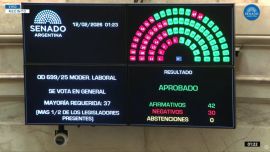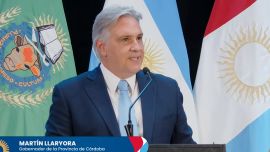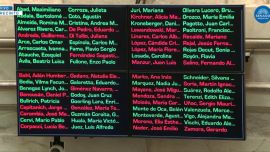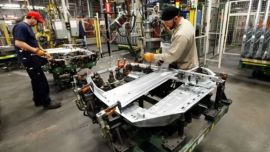Economists say Venezuela has come out of a four-year cycle of hyperinflation, but citizens like pensioner Humberto Reco are still waiting to see the evidence.
The crisis-wracked South American country ended 2021 with inflation of 686 percent, according to the central bank, meaning the end of a period of hyperinflation that began in 2017.
Walking through the popular Chacao market in Caracas, Reco, 75, does not see any positive effect on prices.
"They say hyperinflation is over, but where I am, it's still there," he said. "Honestly, I don't see any improvement."
Venezuela's inflation remains the highest in the world, and prices are continuing to rise uncontrollably.
According to a widely accepted definition of hyperinflation from 1956 by late US economics professor Philip Cagan, it begins when monthly inflation rises by more than 50 percent.
To come out of it, a country needs to keep monthly inflation increases under 50 percent for an entire year, Cagan proposed.
"According to Cagan's figures, we're already getting out of hyperinflation," Hermes Pérez, a professor of economics at the Metropolitan University in Caracas, told AFP.
However, US economists Carmen Reinhart and Kenneth Rogoff proposed a different hyperinflation parameter of 500 percent a year.
According to them, "there's a little more to go," said Pérez.
'Highest in the world'
What is clear, though, is that Venezuela's official inflation figures are heading in the right direction.
The country ended 2017 with 862 percent inflation before it spiralled out of control in 2018, reaching a mind-blowing 130,000 percent.
In 2019, that was down to 9,500 percent, and then around 3,000 percent in 2020.
"It's still the highest in the world," said Pérez, pointing to the fact that nowhere else in Latin America has posted more than double digit figures.
Venezuelans have turned to using the US dollar as much as possible to mitigate the effects of galloping price increases, shunning the national bolivar, a move that has helped slow inflation.
The populist-socialist government, which blames its woes on US sanctions, has even authorised use of the dollar, viewed as a potent symbol of the hated US imperialism.
Authorities also tried to reduce the budget deficit in 2018 by relaxing the iron-fisted exchange controls, almost entirely eliminating the gulf between official and black market exchange rates.
Most experts, though, say there needs to be much deeper reforms to solve Venezuela's economic crisis.
Pérez, the former head of the exchange office at the central bank, believes the bank must stop printing money to finance the state oil company PDVSA following a dramatic fall in oil production from a high of 3.2 million barrels a day in 2008 to as little as 500,000 13 years later.
Several experts believe Venezuela could lower inflation to as little as 120-300 percent this year.
Daily price increases
But for citizens, that macroeconomic improvement has yet to filter down to their personal disposable income.
"People say things are getting harder every day, I say: 'No, it's every minute,'" said Manuel Quijada, 67, a vegetable seller who says prices rise every week.
Others claim it is daily.
Even the dollar is affected by inflation.
Asdrúbal R. Oliveros, an economist and director at consultants Ecoanalítica, says Venezuela is registering greater price increases in dollars than international norms.
The company says prices in dollars rose 40 percent in 2021 compared to 2020.
Even so, pensioner Marina Dusei, 62, says things have improved in the last six months, with the dollar stabilising at between four and five bolivars.
In the past, it could devaluate spectacularly in a matter of hours.
Dusei says it has become easier to budget, but "we don't go out and buy what we want any more, just what we need."
Even so, it is a far cry from three years ago, when rampant inflation left shortages of basic foods and medicines, as well as failing public services.
"I think things can keep getting better," she said optimistically.
related news
by Barbara Agelvis, AFP























Comments